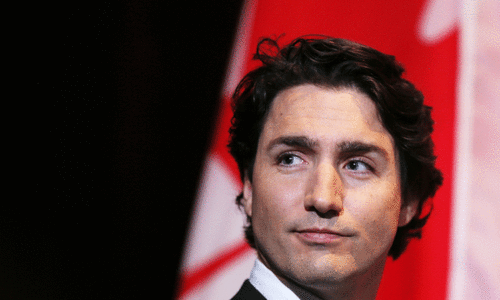Back in 1963, Martin Luther King had a dream. His vision of empowered African Americans resonated across the world where millions believed in his message of equality and brotherhood, and his calls for an end to racism.
The struggle for the emancipation of black Americans was not easy. Many people died. King himself was assassinated. But eight years ago, Americans elected their first African American president.
Barack Obama spoke of hope and change. He also had a vision of an America at peace with itself and with the rest of the world.
How times and presidential election campaigns change. As Obama’s second term as president draws to an end, talk of dreams and hope have been replaced by poisonous messages of hate and fear.
These days, America’s would-be presidents don’t dream. They have nightmares. They spout ugly words and dark, morbid visions of an America overrun by immigrants, terrorists, Muslims and Mexicans.
Billionaire Donald Trump is of course “hate-monger in-chief”, his anger and loathing for those outside his circle appears to know no bounds. But he is not alone. Others in the US are propagating an equally toxic message.
And here in Europe the political landscape is just as grim. The one woman, German Chancellor Angela Merkel, who did harbour a dream of a Europe willing to receive and accept people fleeing war and persecution, is in a minority of one in a European Union which counts 28 states.
Instead of being acclaimed as a courageous leader who lives by the values that so many in Europe profess to believe in — but clearly don’t want to practice — Merkel is derided as naive and irresponsible.
The German leader’s male colleagues have a different agenda. They are clamping down hard on refugees, building fences, reinforcing border controls. And they are joining Trump in disseminating a message of fear, intolerance and hate.
Even as hapless EU officials have warned governments not to take “unilateral actions”, last week Austria and the Balkan states made clear that they will go their own way.
Hungary, Poland, Slovakia and the Czech Republic have been among the staunchest opponents of EU plans to transfer asylum-seekers arriving in southern Europe to other EU states.
Austria last week announced a daily cap on the numbers of people allowed to apply for asylum or travel through to apply elsewhere, prompting some Balkan countries to introduce restrictions. As a result, migrants have been stranded in Greece, the main entry point into Europe.
There is angry talk by Greece and Italy of stopping funding for the countries who refuse to play the “solidarity” game by taking in refugees, but nobody is really listening.
Meanwhile, in France, a court has given the green light to plans to evacuate hundreds of migrants from the notorious “Jungle” camp in Calais. Worried that the migrants will cross the border, Belgium has decided to impose frontier checks, thereby giving another blow to the EU’s so-called Schengen agreement on the free movement of people.
Europe’s reaction to the refugee crisis is chaotic, inhumane and shocking. United Nations High Commissioner for Refugees Filippo Grandi has warned, for instance, that border restrictions along the Balkan route go against international and European rules.
Europe’s tough-talking leaders have escaped media scrutiny for the moment. Most journalists have neither the time nor the inclination to investigate the reality of Europe’s migrant crisis.
But history will certainly pass harsh judgement on the policies and actions of the European, especially Eastern European, leaders.
And what about Britain? As continental Europe frets over refugees, British politicians are in the grip of a strange self-inflicted wound known as the “Brexit” debate over membership of the EU.
Having secured a “deal” earlier this week with his EU colleagues on renegotiating the terms of Britain’s EU membership, British Prime Minister David Cameron’s hopes of winning the June 23 referendum for his “stay in Europe” campaign were shattered when the quirky but very popular Mayor of London, Boris Johnson, threw his ample weight behind the “exiters”.
With any expectations of a sane conversation in Britain now also buried, people can put aside any hopes of a change in Europe’s politics of fear.
So is there anyone else out there who can make us dream again? Russia’s Vladimir Putin has his cabal of admirers but does not inspire hope among anyone else.
Turkish President Recep Tayyip Erdogan may have caught the world’s imagination a decade ago but is now discredited as just another authoritarian leader who has lost touch with reality.
China’s President Xi Jinping is too busy grappling with his country’s “new normal” economic slowdown to pay attention to global challenges.
For all the talk of India’s rise, Prime Minister Narendra Modi is no global leader. Neither is Indonesia’s President Jokowi or Japan’s Prime Minister Shinzo Abe. Iran and Saudi leaders are busy adding to the world’s problems by fighting each other through proxies in Syria, Iraq and Yemen.
Which brings us nicely to Canada. Justin Trudeau certainly stands tall as a man of principle, compassion and humanity. While his counterparts in other countries deafen us with their rabid rants, and European and US politicians paint the world in black, the young Canadian leader is proof of the power of dreams.
—The writer is Dawn’s correspondent in Brussels.
Published in Dawn, February 27th, 2016















































